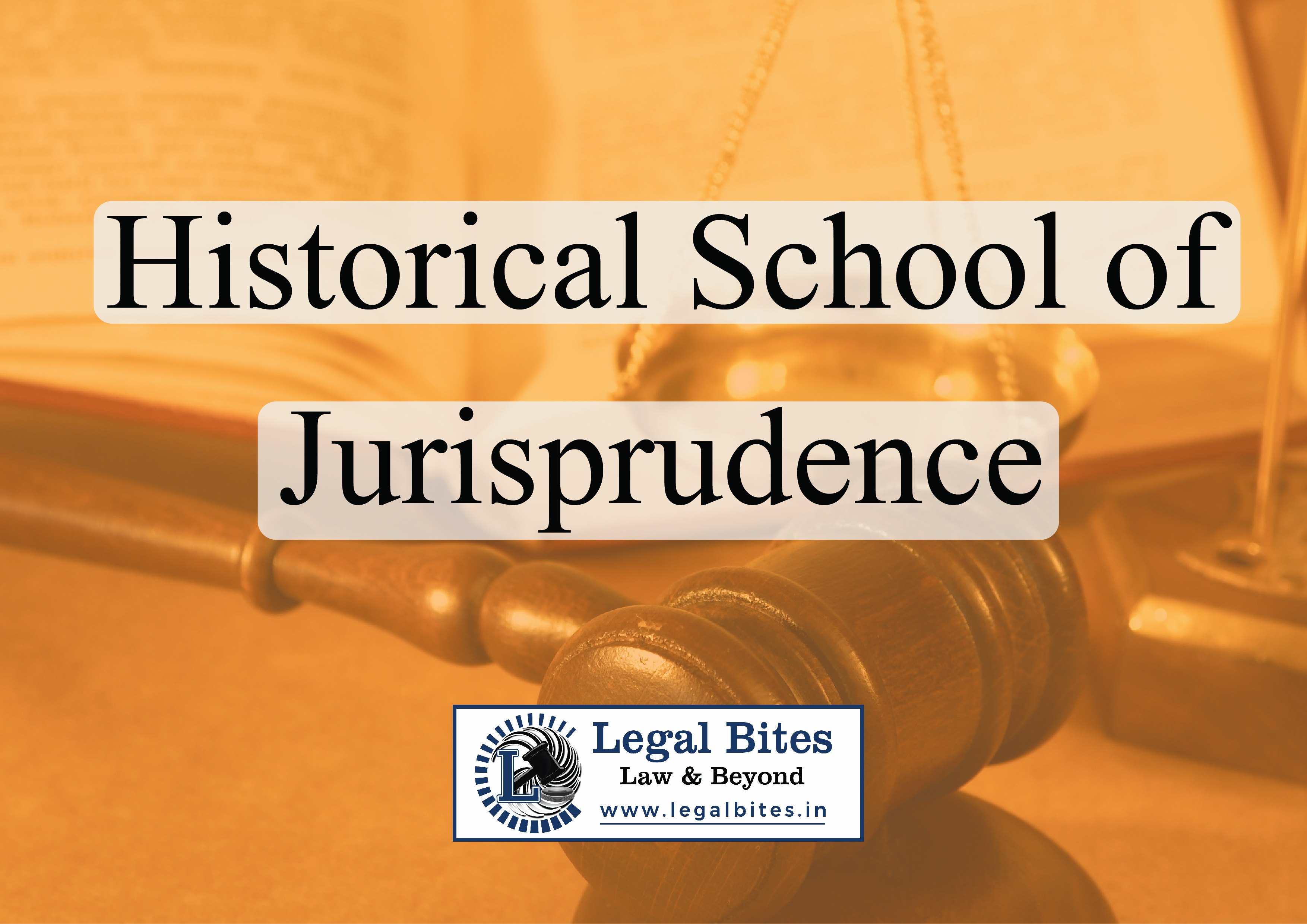Historical School of Jurisprudence
Historical school of jurisprudence deals with the origin and development of the general principles of law as well as certain important legal principles which have been imbibed into legal philosophy. It primarily emerged as a reaction against the natural law school.

Historical school of jurisprudence deals with the origin and development of the general principles of law as well as certain important legal principles which have been imbibed into legal philosophy. It primarily emerged as a reaction against the natural law school. In fact, Prof. Dias opines that its reaction against the natural law theories can be said to be the basis of several important principles of historical jurisprudence. Some thinkers are also of the opinion that the...
Historical school of jurisprudence deals with the origin and development of the general principles of law as well as certain important legal principles which have been imbibed into legal philosophy. It primarily emerged as a reaction against the natural law school. In fact, Prof. Dias opines that its reaction against the natural law theories can be said to be the basis of several important principles of historical jurisprudence. Some thinkers are also of the opinion that the Historical School has emerged as a reaction against Analytical legal positivism.
Montesquieu
F. K. Von Savigny (1779-1861)
His idea of Volksgeist has been criticized for the lack of precision. According to Prof. Dias, there no doubt lies a certain amount of truth in the concept. However, Savigny has gone too far by developing major ideas and theories on the concept. The idea of Volksgeist is a product of the growing spirit of nationhood that existed throughout Europe in those times. Volksgeist is a concept with limited applicability which has been unreasonably stretched and made universal by Savigny.
Nevertheless, Savigny is considered to be one of the greatest jurists of the 19th Century. Ihering has stated that with the publication of Savigny's early works, modern jurisprudence was born. It is regarded as quite unfortunate that the Germans used the concept of Volksgeist to suit their own ends. They regarded the nation as a racial group and used the concept to enact laws against the Jews.
Sir Henry Maine (1822-1888)
Maine studied the development of primitive societies and identified three agents of legal development:
- Legal Fiction- Using legal fiction, law is changed according the needs of time while casting an impression that it is remaining uniform and constant. He states, "I employ the expression 'legal fiction' to signify any assumption which conceals or affects to conceal, the fact that a rule of law has undergone alteration, its letter remaining unchanged, its operation being modified."
- Equity- Equity is used to modify the law "as a set of principles invested with higher sacredness than those of original law."
- Legislation- Finally people came to realize that law can simply be reformed by explicit declarations of an intention to do so and enactment of legal codes. This process was termed as legislation.
Estimate of Historical School
Historical School has always maintained that law cannot be studied in complete isolation of its social aspect. It is a movement for facts against fancy. While it is recognized that the Historical School primarily studies the "evolution" of law, it is also noted by jurists that "evolution" does not mean "progress". It has been opined by some jurists that the Historical School owes its existence as a juristic school to the fact that it supplies the historical aspect of a particular law or legal concept as an aid for interpretation. The moment it fails to do so, it shall no longer be said to be a juristic school.
Comparison between Historical School and Analytical School
Both, the Historical School as well as the Analytical School, use the analytical method to study law. The most important point of distinction between the two is that the Analytical School studies the concepts as they are in the present time whereas the Historical School is concerned with the historical development of certain important legal concepts. Other points of distinction may be briefly summarized as follows:
- The scope of the Analytical School is confined to mature legal systems whereas that of Historical School extends to primitive legal institutions of society.
- Analytical School believes that law is a creation of man whereas the Historical School believes that law is self-existent.
- The Analytical School believes that law has been created by the State whereas the Historical School believes that the concept of law existed even before that of State.
- The Analytical School believes that the "hallmark of law is its enforcement by the sovereign" whereas the Historical School is of the opinion that law does not owe its existence to its enforcement by a sovereign.
- Unlike Analytical School, the Historical School regards custom as a formal source of law.
- While interpreting any law, the Historical School emphasizes upon its historical aspect whereas the Analytical School is strictly concerned with its textual contents.
Distinction between Legal History and Historical School
There is a fine distinction between legal history and historical jurisprudence. While legal history studies the origin and development of an entire legal system, historical school is concerned with the history of legal principles existing within a legal system and not the entire legal system. Both the disciplines are equally important in the study of law.
REFERENCES
- V. D. Mahajan, 'Jurisprudence and Legal Theory', Fifth Edition, Eastern Book Company.
- W. Friedmann, 'Legal Theory', Fifth Edition, Sweet & Maxwell (South Asian Edition).
Important Links

